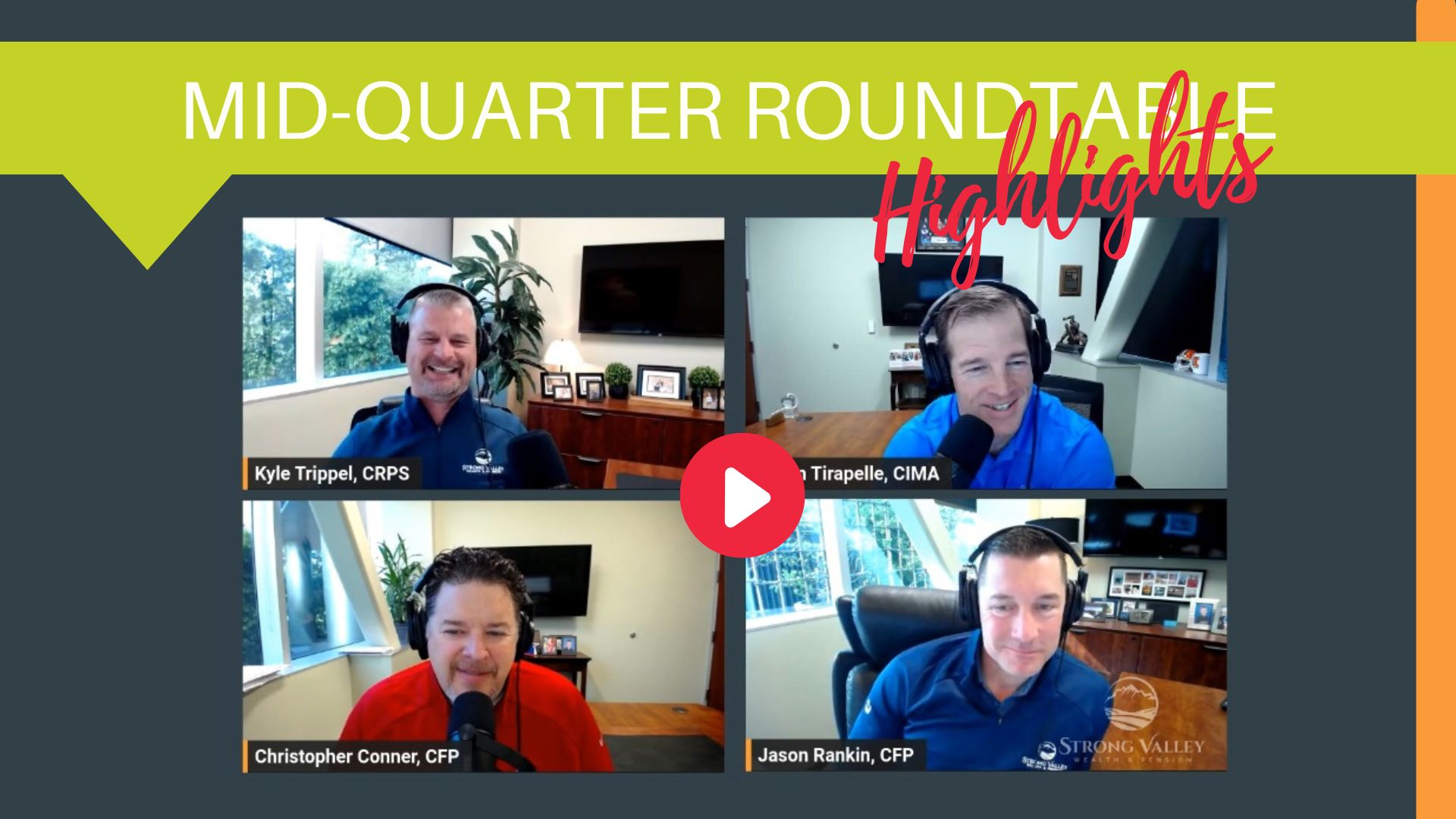You are now leaving the Strong Valley Wealth & Pension, LLC ("Strong Valley") website. By clicking on the "Schwab Alliance Access" link below you will be entering the Charles Schwab & Co., Inc. (“Schwab”) Website. Schwab is a registered broker-dealer, and is not affiliated with Strong Valley or any advisor(s) whose name(s) appears on this Website. Strong Valley is/are independently owned and operated. Schwab neither endorses nor recommends Strong Valley. Regardless of any referral or recommendation, Schwab does not endorse or recommend the investment strategy of any advisor. Schwab has agreements with Strong Valley under which Schwab provides Strong Valley with services related to your account. Schwab does not review the Strong Valley website(s), and makes no representation regarding the content of the Website(s). The information contained in the Strong Valley website should not be considered to be either a recommendation by Schwab or a solicitation of any offer to purchase or sell any securities.

Don’t let disorganization become one of your biggest money problems. Having information on your accounts and assets organized, updated and shared helps with those unexpected interruptions in life that we all experience. It will be well worth the effort you put in today - for you and the people you love.

It’s easy to lose or misplace money. But unlike finding $20 in an old jacket, what if a bank or investment account containing thousands goes untouched for years because you forgot about it or never told anyone it existed?
For various financial accounts, holdings, investments, loans, tax returns, and other arrangements, you need to gather account information and relevant contacts. If you’re wondering why it’s worth taking the time to get all this info in one place, just think of the people you love. By organizing your financial and legal documents, if something happens to you your family can more easily:
First, you need to determine all the types of accounts you have. Here’s a comprehensive list to get you started:
After you’ve identified all the accounts you have, here’s the information you need to gather for each. Tip: The details for each account or asset may vary, so just pointing a person you trust in the right direction -- like giving them the name of your financial advisor -- will be super helpful.
Name of Financial Institution:
Type of Credit Card: Visa | MasterCard | American Express | Discover | Diner’s Club | JCB | Store/Gas Card | Other
How do you prepare your taxes? (You could answer this question out loud but that won't really do anything. Except maybe scare the cat. So keep track of it.)
If you use a Financial Planner/Accountant: Share the name and contact info of this professional.
If you do your own taxes using Software or an Online Service: What software/service do you use? How do you login to this account?
No Matter What: Tell someone you trust where you keep your past tax returns! If something happens to you, these are an ideal financial blueprint for people in your life to understand your estate.
Keeping important documents (deed to your house, insurance policies) and valuable items (heirlooms, jewelry) extra safe is smart. Not giving someone access in case something happens to you can turn into a long detour through the courts. This is especially troubling if you kept your Will or other important documents your family might need in a safe deposit box. Solution: Check with the bank where you’re renting a box and name a designee or whatever they might refer to this person as.
Now, onto the details to share:
Don’t let any loans your family and loved ones are unaware of sneak up on them. Keep track of the following info and once the loan is paid off feel free to mark it “PAID” and celebrate.
Type of Loan: Line of Credit | Personal Loan | Student Loan | Other
Make sure all of the stuff listed above is neatly organized, updated, and shared with a trusted family member or close friend. Your financial advisor can offer experienced assistance as well. Having this information organized and available helps with those unexpected interruptions in life and is well worth the effort you put in today.



